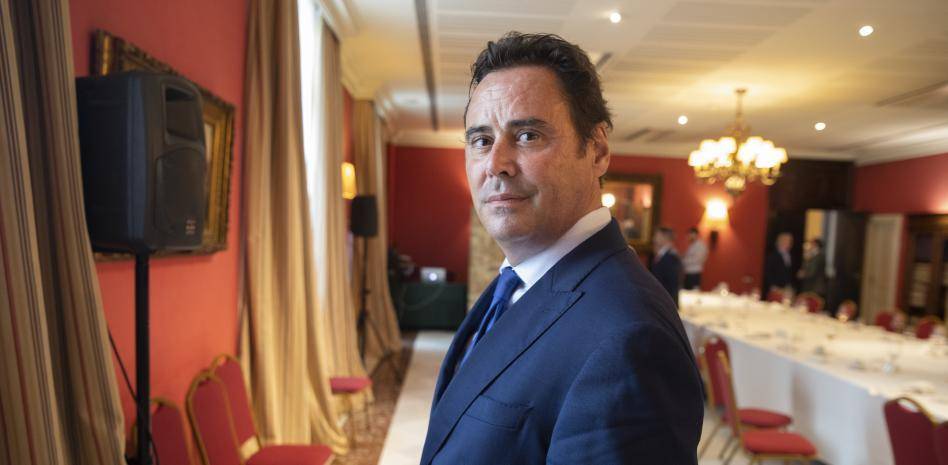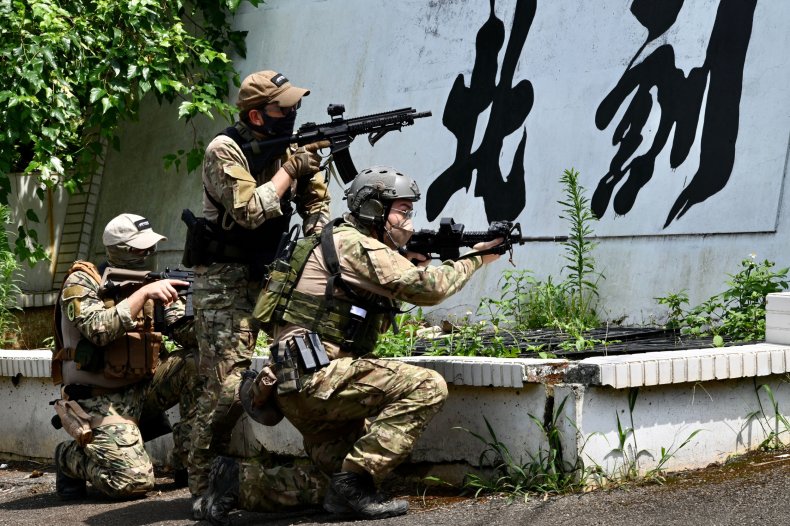Can China be a rival and a partner at the same time?
The EU strategy defines it as a partner. It is essential and necessary to have China to rule the world. Without your help we cannot tackle global challenges like the pandemic and the climate crisis. It is an important partner in reaching an agreement with Iran on nuclear weapons.
But the EU also defines it as a commercial and systemic rival.
China is the second economy in the world in terms of GDP and the first if we take into account purchasing power parity, that is, what can be done with a dollar.
Are we business competitors?
The EU and China are the world's most important trading partners. Trade between the EU and China is worth more than €2,000 a day. It is greater than the trade between China and the United States or between China and India. That said, we are also competitors. But we do not have to fight, but rather negotiate so that European companies that export to China have the same conditions as Chinese companies that export to Europe, something that is not happening now.
Is there a risk of disengagement?
There is, but not by the will of China. Western businessmen are the ones who have seen the need to rethink production. The pandemic exposed the vulnerability of value chains. States, for their part, do not want excessive reliance on materials such as rare earths and on technologies that may be subject to sanctions. However, China's exports to Europe continue to grow. Chinese foreign trade continues to grow. That is why the disengagement would cause a cataclysm. Despite the ongoing deglobalization, the world is tremendously intertwined. We depend on each other.
And systemic rivalry?
The EU defines China as a systemic rival because we are societies with very different values ??and political systems. We do not want you to export your model, but this does not mean that we should pursue regime change in China.
NATO accuses China of undermining the security, values ??and interests of allies.
China no longer plays for time and hides its strength, as was the case in Deng Xiaoping's time. For a few years, it has been showing its muscle, especially in the South China Sea, and this poses very important geostrategic problems in a crucial area for international trade and economy. We cannot tolerate that China violates the rules of international law accepted by all and that it occupies areas that do not belong to it. This does not mean that we cannot negotiate with her.
How do you see President Xi Jinping? He has closed an alliance with Russia, today the main enemy of Europe and NATO.
President Xi is the leader of one of the world's greatest powers and we must come to terms with him.
But Xi is an ally of Putin.
What is happening in the Ukraine is not at all comfortable for China. The territorial unity of a country is fundamental for China. Xi insists on it to claim reunification with Taiwan. Therefore, for consistency, he should condemn Russia's aggression against Ukraine.
But he does not and threatens Taiwan with the use of force.
China has seen how the invasion against Ukraine has met with one of the most powerful reactions from the EU, the United States, Canada, Japan, Korea and many other countries. I am not saying that Ukraine is an example of what can happen in Taiwan, but China has been surprised by this united response. Also, Taiwan is a mountainous island, not a flat country with wide land borders like Ukraine. It is to think about it.
How would the EU react to a possible attack by China on Taiwan?
The EU does not defend the independence of Taiwan, but the peaceful reunification. We believe that there should be only one China, but in the event of a military invasion we have made it very clear that the EU, with the US and its allies, will impose similar or even greater measures than those we have now taken against Russia.
Does the EU follow US orders in China or does it have an agenda of its own?
The EU has its own geopolitical profile. We are the largest market in the world. The greatest regulatory power in the world. We use this power to be someone in the geopolitical scene. Being allies of the US does not mean that we are aligned with Washington on everything. The EU is in favor of multilateralism, of international institutions working, such as the World Trade Organization, which have benefited China so much.
The Chinese economy seems to have structural problems. It's not so competitive anymore.
China has lifted nearly 800 million people out of poverty. This is a free market success, not communism. However, like any country that develops very quickly, there comes a time when it cannot continue to grow as fast. The demographic pressure on the economy is enormous. Labor becomes more expensive and competitiveness is lost.
But China now manufactures more value-added products.
Yes. It has gone from producing a lot of textiles to producing a lot of technology, but it no longer has the endless army of workers that it used to have. The real estate sector, in addition, has an excessive weight. It represents 30% of GDP. There are problems of bank financing in the sector. The crisis can explode at any moment.
As it happened in Japan in the nineties. You know Japan well. He was an embassy secretary at the time and an ambassador until recently.
Japan, when I arrived in 1995, had a per capita income 50% higher than that of the US Today it is the other way around. The US has 50% more than Japan.
Was the cause demographic?
It was an important cause. The population has aged, as it is now aging in China, where the birth rate is very low. In Japan every year there are 550,000 fewer people. It has 125 million inhabitants, but three years ago it had almost 127. At this rate, in 2050 it will have 80 million. In 1989, the Nikkei index reached 36,000 points. Today, 32 years later, it is over 26,000. It has not yet recovered lost ground.
Progress Hasn't Brought Democracy to China, Can a Recession?
Ambassador Eugeni Bregolat maintained that development would lead to democracy, but this has not been the case. Political freedoms in China are not at their best, but they are not at their worst either. The big question is whether the Chinese social contract will hold. That is, if prosperity and well-being will continue to compensate for the sacrifice of political and social freedoms. I do not know. I dare not answer it.







 Jorge Toledo Albiñana is the new ambassador of the European Union in China. On September 1, if the pandemic allows it, he will be in Beijing to assume his position, one of the most important that Spanish diplomacy has had in the EU foreign service. On Monday he was at the Barcelona Equestrian Circle to address the challenges of his new position. One of the main ones will be convincing China that it is one of the countries that has benefited most from the world order that emerged from World War II and that cooperation with the West must continue.
Jorge Toledo Albiñana is the new ambassador of the European Union in China. On September 1, if the pandemic allows it, he will be in Beijing to assume his position, one of the most important that Spanish diplomacy has had in the EU foreign service. On Monday he was at the Barcelona Equestrian Circle to address the challenges of his new position. One of the main ones will be convincing China that it is one of the countries that has benefited most from the world order that emerged from World War II and that cooperation with the West must continue.